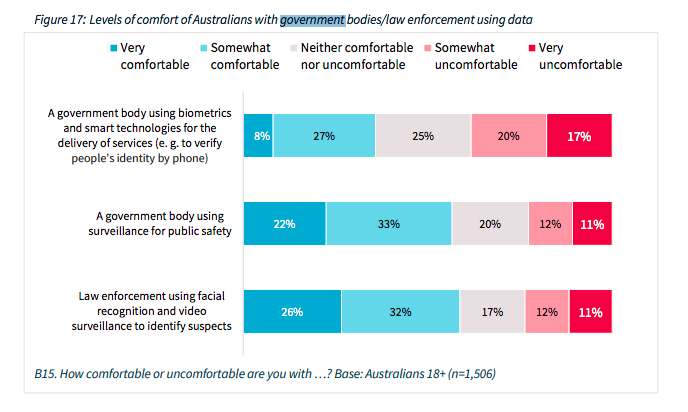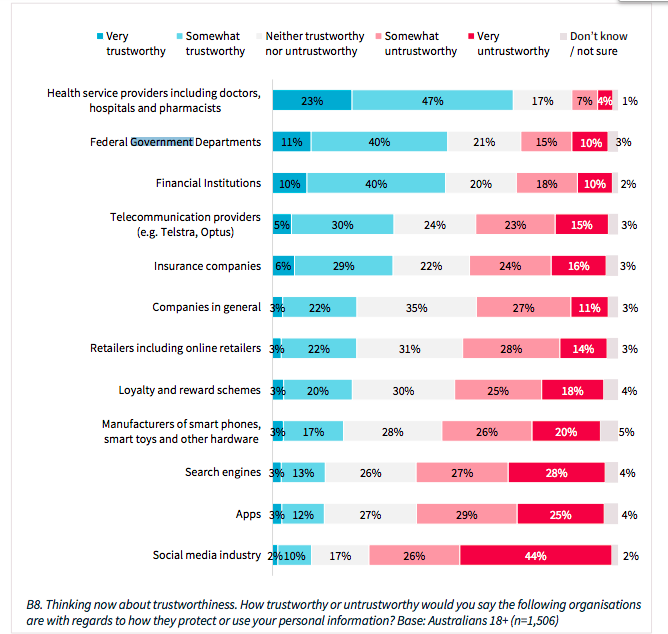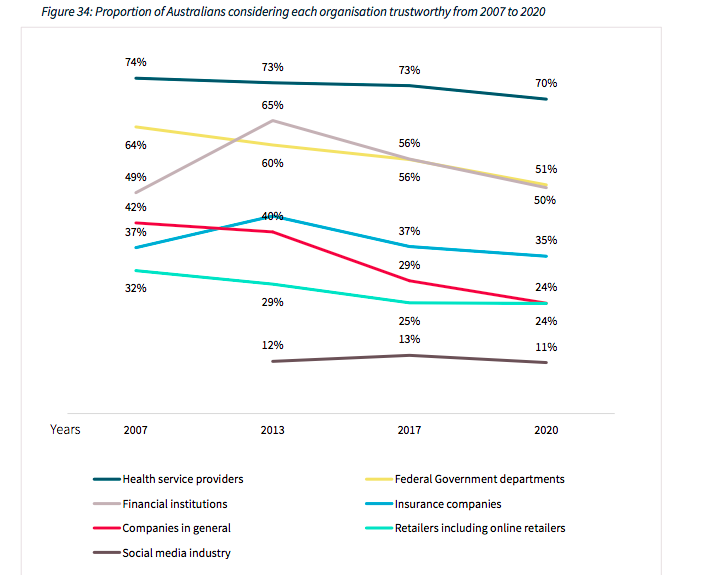
More than eighty per cent of Australians think the government should do more to protect the privacy of their data, according to a survey by the Office of the Australian Information Commissioner.

The good news is they are slightly more comfortable with the government’s use of personal information than they were in 2017, and government ranks as the second most trusted organisation when it comes to personal data.
The OAIC’s Australian Community Attitudes to Privacy Survey (ACAPS), released last week, also shows government is more trusted than business when it comes to the protection of personal information.
The bad news is trust in in federal government departments has steadily decreased by 14 per cent since 2007, and 83 per cent think the government should do more to protect the privacy of their data, with only 40 per cent believing it’s well protected.
Privacy Commissioner Angelene Falk says the survey highlights the importance of data privacy to Australians in a time of rapidly evolving data collection and storage.
Privacy controls and practices that live up to community expectations will create the trust and confidence that is needed for the public to engage and make data-driven solutions a success.
Privacy Commissioner Angelene Falk
It also contained important insights into community attitudes ahead of the review of the 1988 Privacy Act, she said.
“Privacy controls and practices that live up to community expectations will create the trust and confidence that is needed for the public to engage and make data-driven solutions a success,” she said.
Biometric data
Australians more likely to trust the government than business when it comes to the collection of biometric information.
Forty-eight per cent believe the government is trustworthy, and when it comes to the use of surveillance technologies for law enforcement or public safety most people are comfortable with it.

Most (60 per cent) agree some privacy concessions have to be made to combat COVID-19 and more than half (54 per cent) are comfortable with phone data being collected to do this, as long as it’s done with consent.
However most believe this doesn’t excuse government from meeting it’s privacy obligations under law.
About one in three are happy with information being shared between government agencies but 70 per cent don’t want government ssharing it with business.

Forty per cent are comfortable with a government agency using personal information for research or service and policy development.
Sixty-four per cent believe they should have the right to ask a government agency to delete their personal information.
The report found only seven per cent of Australians knew which law protected their privacy and less than half (48 per cent) knew about the Privacy Commissioner, although this was a four per cent improvement on 2017.

Resource for government agencies
The OAIC has prepared a resource for government agencies on conducting privacy impact assessments as required by their privacy code.
Resource provides guidance on screening for high privacy risks, sets out the benefits of doing a privacy impact assessment even if it isn’t required and includes a threshold assessment template.
The resource, When do agencies need to conduct a privacy impact assessment, is available here.
Comment below to have your say on this story.
If you have a news story or tip-off, get in touch at editorial@governmentnews.com.au.
Sign up to the Government News newsletter